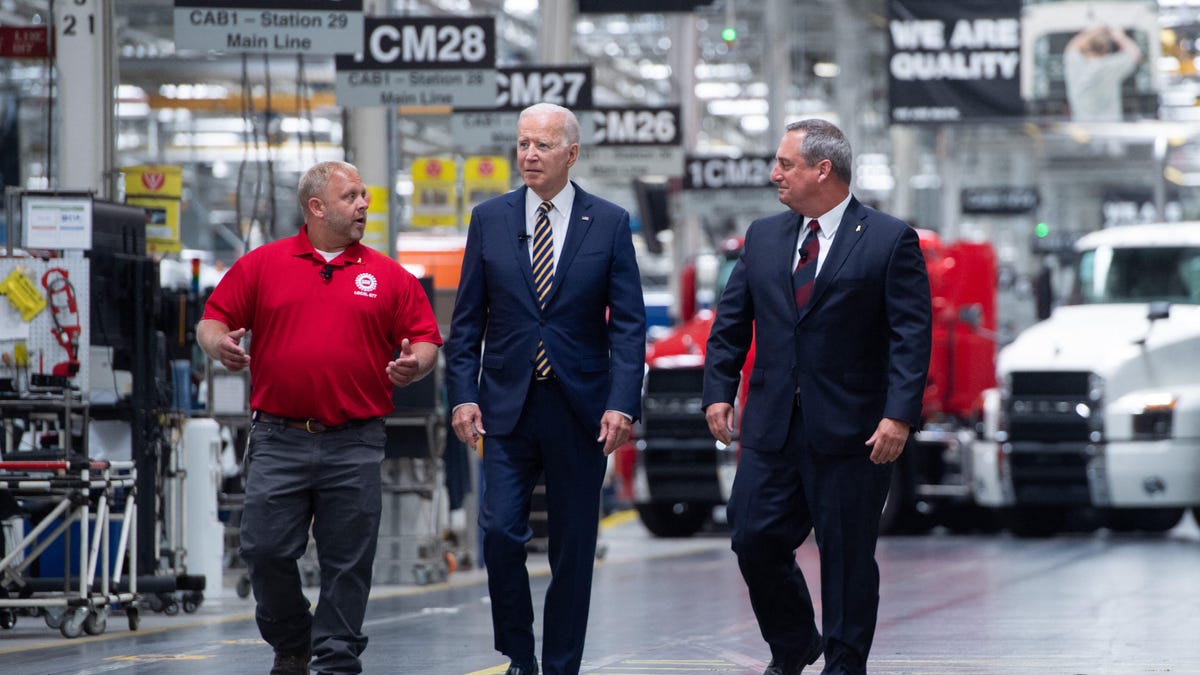Biden rule change would require more US-made parts in products sold to the government
The same day, the president struck a deal with US senators to pass a $1 trillion infrastructure bill.

President Joe Biden gets a tour of a Mack Trucks facility in Pennsylvania. Biden said Wednesday that he wants to see chipmakers produce microprocessors at US plants so shortages won't affect the auto industry and other US manufacturers.
President Joe Biden proposed a new rule Wednesday that would up the requirements for US-made parts in goods sold to the government. The required percentage would jump from 55% to 60% immediately, and gradually rise to 75%.
Speaking at a Mack Trucks manufacturing facility in Pennsylvania, Biden emphasized that the federal government owns about 600,000 cars and that not enough of the parts in the vehicles are made in the US. The same is true for other goods the government buys, he said, even though the Buy American Act requires that "substantially all" parts in items sold to the US government be made domestically.
"Substantially all is going to mean substantially all," Biden said.
The proposed rule would also create stricter enforcement, requiring manufacturers to go into detail about which parts were made in the US, instead of simply stating that the product meets the threshold. The rules aim to increase jobs by creating stronger incentives to manufacture products domestically.
The proposed changes came the same day Biden struck a deal with a bipartisan group of senators to advance a major infrastructure bill that would put $1 trillion toward roads and bridges; transit projects, including rail and airports; charging infrastructure for electric vehicles; broadband service expansion; and improvements to water, sewer and power systems. The compromise bill cut $200 billion from Biden's original proposal and reportedly included less funding for electric vehicle charging.
Biden noted that auto manufacturing in the US has been slowed down by shortages of microprocessors used to power the computers in cars. He said he's pushing to have chipmakers in South Korea and Taiwan open factories in the US to create domestic jobs and prevent future disruptions to the chip supply chain for other US industries.

